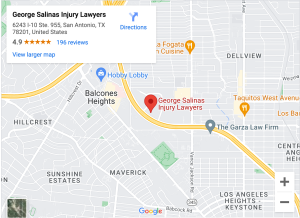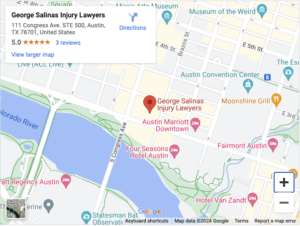
Back pain affects everything you do. It’s the leading cause of missed work days and can even prevent you from getting a good night’s sleep.
Back injuries can result from any type of accident. A motor vehicle accident, fall from a ladder, or slip on a slick restaurant floor can cause a range of symptoms, from chronic back pain to paralysis.
What Are the Structures and Functions of Your Back?

Your back holds your body up, supports the weight of your head, and transfers your body weight to your legs through its connection to your hips. It also allows you to sit, stand, and walk upright.
Another of the back’s functions is to provide flexibility. When you lean over or turn, your back must be able to bend and articulate. Your back has a high range of motion because it includes two dozen separate vertebrae that can move relative to one another.
You have seven vertebrae in your neck, 12 in your chest, and five in your lower back. Doctors refer to these regions as the cervical, thoracic, and lumbar spine, respectively.
A joint and a springy cartilage disc sit between each pair of vertebrae. This structure allows the back to bend and twist without experiencing undue stress.
The spine is held together by fibrous connections called ligaments. Each individual vertebra comprises a solid cylindrical body and protrusions called processes.
The ligaments that wrap around the bodies of the vertebrae run the entire length of the spine and connect the processes to hold the vertebrae to one another and keep the discs in place.
The muscles enable the spine to move and bear weight. They’re anchored via tendons to the bones in places like your spine, skull, shoulder blades, pelvis, ribs, and collarbones.
How Can a Back Injury Happen?
Back injuries usually happen in four ways:
Blunt Back Trauma
You suffer blunt back trauma when something strikes your back without opening a wound.
A common cause of blunt back trauma is a fall. When you slip and fall, your feet lose traction and you fall backward. You might experience blunt back trauma when your back strikes the ground.
Penetrating Back Trauma
Penetrating back trauma happens when an object pierces your back, creating an open wound.
Thus, you might suffer penetrating back trauma when a saw blade breaks off and is propelled into your back. You might also sustain a penetrating injury if you fall onto a piece of rebar that lodges in your back during a construction accident.
Hyperextension
Your back hyperextends when it bends, stretches, or twists unnaturally. The soft tissues can stretch or even tear as it does so, leading to an injury.
A common cause of hyperextension comes from car accidents. In a collision, your body can whip around under the force of the impact, potentially leading to hyperextension injuries.
Repetitive Stress
Stresses cause small tears and cracks to develop in your tissues. If you rest, this damage will heal. But if you repeatedly stress your back, the damage will worsen rather than improve.
Repetitive stress injuries are common in people with jobs that involve walking, lifting, or carrying heavy objects for many hours each day.
What Types of Back Injuries Can Occur?
Your back injury will depend on the nature of the trauma you suffer and the specific structures that are damaged. Some types of back injuries you may experience include:
Back Strain
Strains occur when muscles or tendons suffer a hyperextension injury.
- Muscle pain
- Swelling
- Back weakness and stiffness
- Muscle spasms
Back strain usually heals within four to six weeks without medical treatment. You can treat a back strain at home with rest, ice packs, and anti-inflammatory drugs.
Back Sprain
A sprain occurs when you hyperextend a ligament.
A back sprain can produce symptoms such as:
- Spinal pain
- Inflammation
- Limited range of motion in the back
- Bruises
You can usually tell the difference between a strain and a sprain based on the location of the pain. A sprain typically hurts near the spine, while you’ll feel a strain further away from your spine.
Like strains, sprains usually heal without surgery. Four to six weeks of rest, ice, and anti-inflammatories should be enough to allow your back ligaments to mend.
Damaged Disc
Forces applied to your spine can compress and damage your discs. The discs have an outer fibrous shell and a gel-like interior to cushion your vertebrae. But when they get compressed under the force of an accident, they can deform or even rupture.
A bulging disc happens when the outer shell deforms but remains intact. Instead of having a cylindrical shape, it sags to form a barrel-like shape. A herniated disc happens when the outer shell separates and allows the material inside to protrude.
In either case, the deformed disc destabilizes your spine and causes pain and swelling. The deformation can also press on nearby nerve roots, causing them to become inflamed.
Among other things, inflamed nerves cause:
- Pain that radiates into the limbs
- Numbness and tingling in the feet or hands
- Weakness and loss of dexterity
Doctors cannot repair a damaged disc. They can sometimes relieve nerve inflammation with steroid injections. In serious cases, surgeons can remove a damaged disc and fuse the vertebrae or implant an artificial disc.
Spine Fracture
A spine fracture is the most serious back injury you can suffer. When the vertebrae fracture, the broken pieces of bone can slip into the spinal canal. Once there, they can sever the spinal cord, producing partial or total paralysis.
If you suffer a spinal cord injury in your neck, you could lose sensation and motion in all four limbs. This condition, known as quadriplegia or tetraplegia, is permanent.
How Can You Get Compensation for a Back Injury?
Texas law may entitle you to recover personal injury compensation if you’ve suffered a back injury due to someone else’s actions. Your compensation can cover your economic and non-economic losses, including medical expenses, lost income, and pain and suffering.
To seek compensation, you must show that the other party acted either negligently or intentionally in injuring you. For example, if the person caused your injury when they ran a red light and collided with your vehicle, you might have a claim of negligence against them.
To discuss your back injury and the compensation you can seek for it, contact us at George Salinas Injury Lawyers to schedule a free consultation. Our San Antonio personal injury lawyers will listen to what happened and explain your options.


